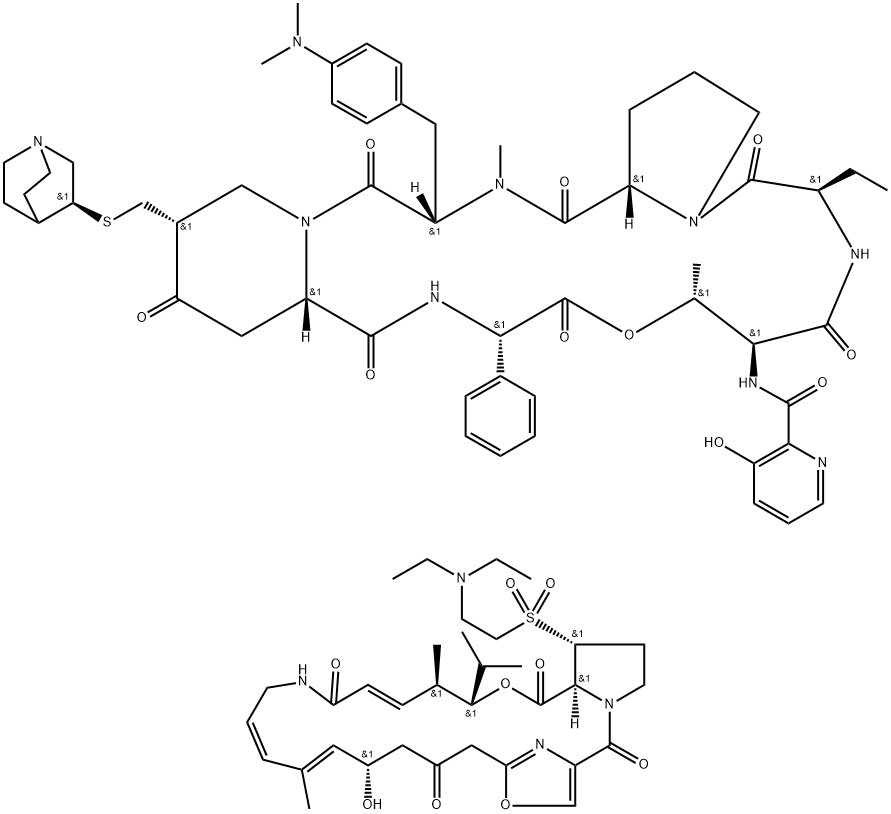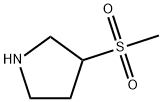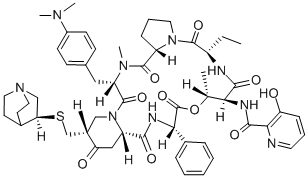Quinupristin-dalfopristin , >98% by HPLC , 126602-89-9
PRODUCT Properties
| InChIKey | PPKJUHVNTMYXOD-JAPDWZECNA-N |
Description and Uses
Dalfopristin and Quinupristin are two well-defined semi-synthetic antibacterials belonging to the class of streptogramins. Together, they form Synercid, an injectable formulation in a ratio 70 : 30 that was launched in the UK followed by the US. The two distinct antibiotic agents, pristinamycins, are bacteriostatic in their own right but, when they are in association, act synergistically at the ribosomal level to inhibit protein synthesis. Synercid is the first antibiotic in its class to reach the market. It appears to be a sound treatment alternative for patients with severe or life-threatening infections, such as the most problematic forms of gram-positive nosocomial sepsis including vancomycin-resistant Enterococcus faecium (VREF) or methicillinresistant Staphylococcus aureus (MRSA).
Quinupristin-dalfopristin mesylate complex is a 70:30 (w/w) complex of two semi-synthetic analogues marketed as SynercidTM. Dalfopristin is a semisynthetic analogue of virginiamycin M, while quinupristin is a semi-synthetic analogue of virginiamycin B. To optimise stability, the compounds are presented as the mesylate salts with 10% sodium mesylate excess to provide a buffered aqueous solution. The complex is more hydrophobic than the naturally-occurring virginiamycin complex, with a readily ionisable group for generating a salt for improved solubility. There is little published data on the synthesis and biological activity of individual components of the complex, however the combination is a highly effective antibiotic, including activity against resistant strains.





![(3R,4R,5E,10E,12E,14S,26R,26aS)-26-[[2-(Diethylamino)ethyl]sulfonyl]-8,9,14,15,24,25,26,26a-octahydro-14-hydroxy-4,12-dimethyl-3-(1-methylethyl)-3H-21,18-nitrilo-1H,22H-pyrrolo[2,1-c][1,8,4,19]dioxadiazacyclotetracosine-1,7,16,22(4H,17H)-tetrone](https://img.chemicalbook.com/CAS/GIF/112362-50-2.gif)